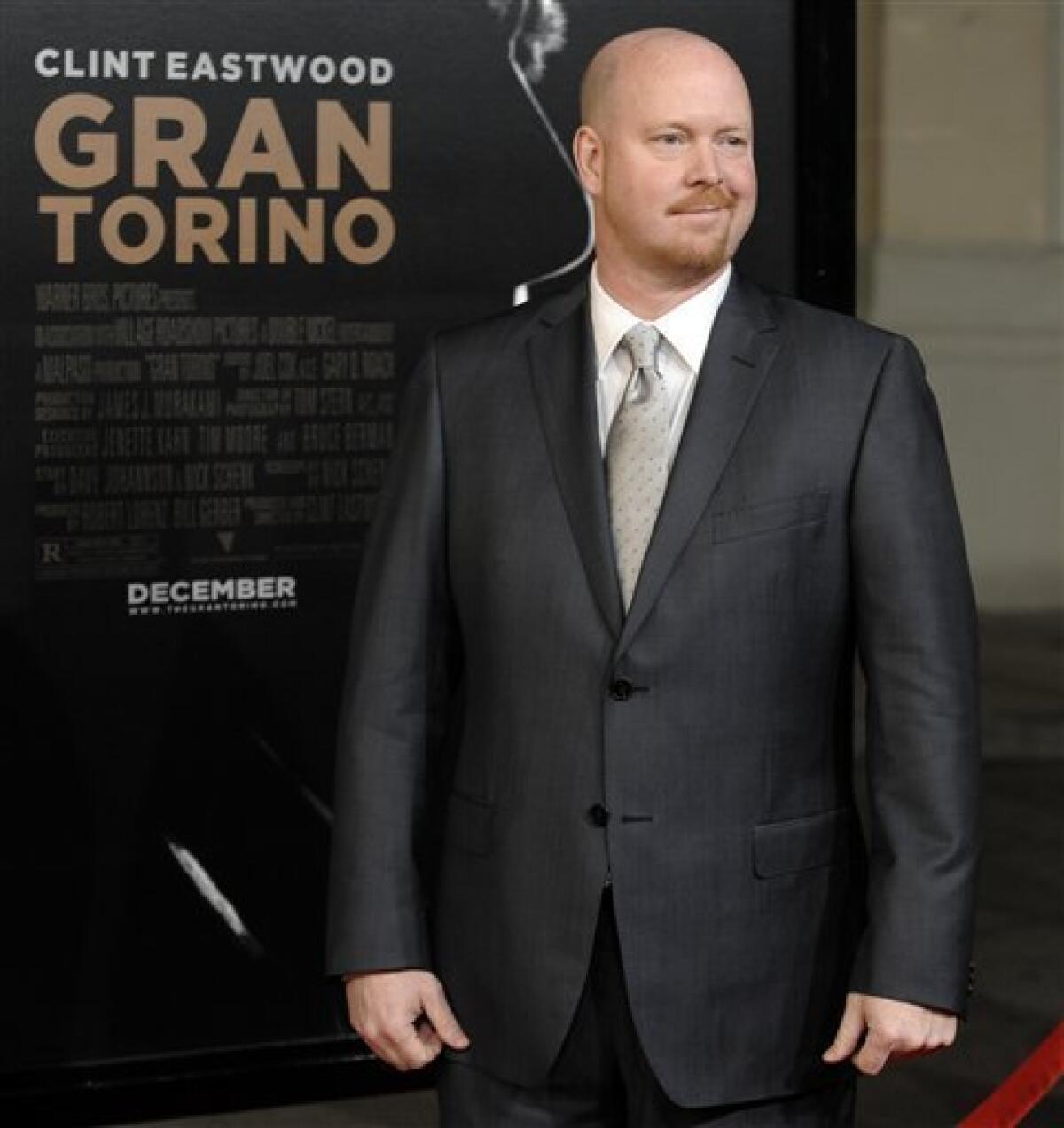Screenwriter floors it with ‘Gran Torino’

Working at a liquor store or a construction site, Nick Schenk developed an ear for realistic dialogue. Eventually he wrote a script on scrap paper while sitting at a blue-collar bar in northeast Minneapolis.
That script was turned into “Gran Torino,” a new movie directed by and starring Clint Eastwood. The film went into wide release Friday after getting critical raves and National Board of Review awards for Schenk for original script and Eastwood for best actor.
Heady stuff for a former fruit truck driver.
“It’s the jackpot,” the 43-year-old Schenk says about the first movie ever made of one of his screenplays.
In “Gran Torino,” the 78-year-old Eastwood plays Walt Kowalski, a racist, retired Ford worker and Korean War vet living in a decaying Detroit neighborhood. A Hmong family moves next door, and their teenage son tries to steal Kowalski’s vintage 1972 Gran Torino as part of a gang initiation. Gruff and snarling at first, Kowalski mellows as he gets to know the family and defends the teenager, Thao, and his sister, Sue, against the gang.
Schenk’s father, Marv, was in Korea, but Schenk says Kowalski is a composite of other guys. He compares the character to your gym teacher, coach, shop teacher or “dad when you’re putting your bike back together wrong and he’s waiting for you to screw up so he can roll his eyes. We all know who that is.”
Schenk, who grew up in the Minneapolis suburb of Fridley, already had experience as a writer and producer for “Let’s Bowl” on Comedy Central and on a mixed martial arts TV show. He had co-written another screenplay that was sold but never produced. That only “whetted my beak to never quit,” said Schenk, who moved to Los Angeles in June.
A military history buff, Schenk talked with a friend about the Korean War, often called “The Forgotten War.” That morphed into the story of a Korean War vet. The two outlined the story, and Schenk – who did not own a laptop – would write the script with pen and paper at Grumpy’s, a neighborhood bar.
Schenk wrote “98 percent of the first draft, and he’s fast,” says Dave Johannson, 39, who shares story credit on “Gran Torino.” It took about three months for Schenk to write the screenplay, which he and Johannson then honed.
Eventually Schenk got the screenplay to executive producers Jenette Kahn and Adam Richman, who shopped it to actor after actor until Eastwood said yes.
“He didn’t change a word,” Schenk said.
Schenk intended “Gran Torino” to be set in St. Paul, which has a Ford plant as well as a large population of Hmong, the hill people who emigrated from Southeast Asia after fighting for the U.S. in a CIA-backed campaign during the Vietnam War. But he says Minnesota couldn’t compete with Michigan’s 42 percent film rebate.
Schenk had worked with Hmong families in a factory job and visited a Hmong cultural center in St. Paul. He also got authenticity from the veterans he ran into on the job.
“I had guys tell me their stories, their war stories, because they could trust me or I was sympathetic and respectful. So they would tell me stuff that they could not tell their wives and would not tell their kids.”
Grumpy’s owner Pat Dwyer, a friend, calls Schenk “a solid, blue-collar, hardworking guy” who’s also erudite – someone “you can sit and talk about ice fishing or the Vikings (with) or you can talk about art and literature.”
And success has not changed Schenk, Dwyer said. “I know he’s justly proud and really happy but he’s not putting on airs or anything,” he said. “He’s still Nick.”
–––
On the Net: